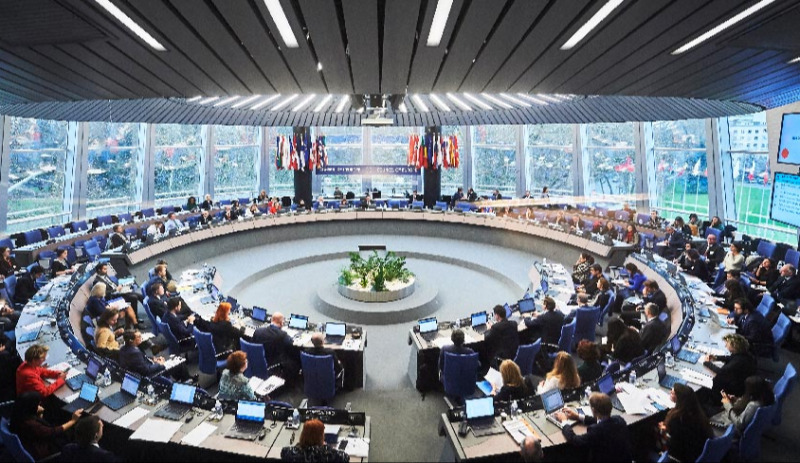The Council of Europe’s (CoE) Committee of Ministers once again urged Turkish authorities to comply with the rulings of the European Court of Human Rights (ECHR) and release Selahattin Demirtas, the former co-chair of the Peoples’ Democratic Party (HDP), and human rights defender Osman Kavala.
The Committee of Ministers published on Friday the case-by-case decisions taken during the Committee’s meeting from 20 to 22 September to supervise the implementation of ECHR decisions.
Demirtas case
In the case of Selahattin Demirtas, the Committee referred to the ECHR’s findings that Demirtas’s detention “pursued the ulterior purpose of stifling pluralism and limiting freedom of political debate,” and noted that his individual application challenging his detention has been pending before the Constitutional Court since 7 November 2019.
Underlining the urgent need for Demirtas’s complaint to be examined rapidly, the Committee “strongly urged the Turkish authorities, again, to assure the applicant’s immediate release, underlining that Mr. Demirtaş has now been held in pre-trial detention since 4 November 2016.”
Kavala case
In the case of Osman Kavala, the Committee noted that the case was referred back to the ECHR after the Committee earlier reviewed Turkey’s non-compliance with the Court’s decision to release Kavala, and that upon the Court’s recent decision on Turkey’s violation of the European Convention on Human Rights (Article 46/1), the case was referred back to the Committee of Ministers for consideration of the measures to be taken.
The Chair of the Committee of Ministers was “encouraged to to discuss with the President of the Parliamentary Assembly of the CoE on further steps that could be taken by the Committee if Kavala remains in detention.”
Background
Turkish President Recep Tayyip Erdogan said in early February:
“We will not recognize the courts of those who do not recognize ours. There are certain decisions issued by our courts, and we are not really concerned about what the ECHR or the Council of Europe have been saying. We expect our courts to be treated with respect. We will not respect those who do not treat our courts with respect.”
The ECHR had ruled in December 2019 that the European Convention on Human Rights was violated in the Kavala case, and called for Kavala’s immediate release. The ECHR had concluded that Kavala’s arrest was based on political motives, without any reasonable evidence backing the charges.
The ECHR had ruled on 22 December 2020 that in detaining Demirtaş and then prolonging his detention for over four years, the Turkish government pursued an ulterior purpose of preventing him from carrying out his political activities, depriving voters of their elected representative, and “stifling pluralism and limiting freedom of political debate: the very core concept of a democratic society.” The Court had ordered the immediate release of Demirtaş.
The Coe Committe of Ministers have been publishing decisions for nearly three years over the non-compliance of the Turkish judiciary with ECHR rulings and over Turkey’s violation of the European Convention on Human Rights, which says in the first paragraph of article 46: “the High Contracting Parties undertake to abide by the final judgment of the Court in any case to which they are parties”
Source:gerceknews



